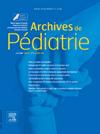Managing child abuse or suspected child abuse in primary care: Results from a qualitative study of general practitioners trained in detecting child abuse
IF 1.3
4区 医学
Q3 PEDIATRICS
引用次数: 0
Abstract
Introduction
Identifying and alerting suspected child abuse enables its investigation and management. In France, anyone can report the situation to child services when child abuse is suspected. However, the number of reports of concern received from physicians is low, and lack of knowledge is a frequent obstacle. This study aimed to explore the practices of trained general practitioners (GPs) regarding the identification and management of suspected child abuse.
Method
We led a qualitative study from February to November 2021 based on a grounded theory approach. We conducted semi-structured interviews with GPs working in the south of France who had received training in identifying child abuse. We performed an inductive analysis using NVivo software.
Results
We interviewed 10 GPs (data saturation with seventh GP). Despite the training, obstacles seemed to persist, such as apprehension of the parents’ reaction, the technical difficulties of the process, and the lack of feedback after making a report. Being accompanied by a professional who can be directly contacted would facilitate the communication of worrying information. Without direct links to a single referent, doctors would prefer alternative ways of referring their patients to organizations they were familiar with.
Discussion and conclusion
GPs expressed a need for easy access to childcare professionals to support them in the decision to file a report of suspected child abuse. A multidisciplinary approach and a dedicated point of contact seemed to help the process. Nominating a child protection referent doctor per department and creating specific units in hospitals for children at risk would help GPs get effectual contacts for reporting worrying information and better care for children at risk of abuse.
在初级保健中处理虐待儿童或疑似虐待儿童问题:对接受过虐待儿童检测培训的全科医生进行定性研究的结果:在初级保健中处理虐待儿童或疑似虐待儿童问题。
导言:发现和提醒可疑的虐待儿童行为有助于对其进行调查和管理。在法国,任何人在怀疑儿童受到虐待时都可以向儿童服务机构报告。然而,从医生那里收到的报告数量却很少,而且缺乏相关知识也是一个常见的障碍。本研究旨在探讨经过培训的全科医生(GPs)在识别和处理疑似虐童事件方面的做法:我们于 2021 年 2 月至 11 月以基础理论方法开展了一项定性研究。我们对在法国南部工作、接受过识别虐待儿童培训的全科医生进行了半结构化访谈。我们使用 NVivo 软件进行了归纳分析:我们采访了 10 名全科医生(第七名全科医生的数据达到饱和)。尽管接受了培训,但障碍似乎依然存在,如对父母反应的担忧、处理过程中的技术难度以及报告后缺乏反馈等。如果有一位可以直接联系的专业人员陪同,将有助于沟通令人担忧的信息。如果不能直接联系到单一的转介人,医生更愿意选择其他方式将病人转介到他们熟悉的机构:讨论与结论:全科医生表示,他们需要方便地联系儿童保育专业人员,以支持他们做出报告疑似虐待儿童事件的决定。多学科方法和专门的联络点似乎有助于这一过程。在每个科室指定一名儿童保护推荐医生,并在医院设立专门负责高危儿童的部门,将有助于全科医生获得有效的联系方式,以报告令人担忧的信息,并更好地照顾面临虐待风险的儿童。
本文章由计算机程序翻译,如有差异,请以英文原文为准。
求助全文
约1分钟内获得全文
求助全文
来源期刊

Archives De Pediatrie
医学-小儿科
CiteScore
2.80
自引率
5.60%
发文量
106
审稿时长
24.1 weeks
期刊介绍:
Archives de Pédiatrie publishes in English original Research papers, Review articles, Short communications, Practice guidelines, Editorials and Letters in all fields relevant to pediatrics.
Eight issues of Archives de Pédiatrie are released annually, as well as supplementary and special editions to complete these regular issues.
All manuscripts submitted to the journal are subjected to peer review by international experts, and must:
Be written in excellent English, clear and easy to understand, precise and concise;
Bring new, interesting, valid information - and improve clinical care or guide future research;
Be solely the work of the author(s) stated;
Not have been previously published elsewhere and not be under consideration by another journal;
Be in accordance with the journal''s Guide for Authors'' instructions: manuscripts that fail to comply with these rules may be returned to the authors without being reviewed.
Under no circumstances does the journal guarantee publication before the editorial board makes its final decision.
Archives de Pédiatrie is the official publication of the French Society of Pediatrics.
 求助内容:
求助内容: 应助结果提醒方式:
应助结果提醒方式:


